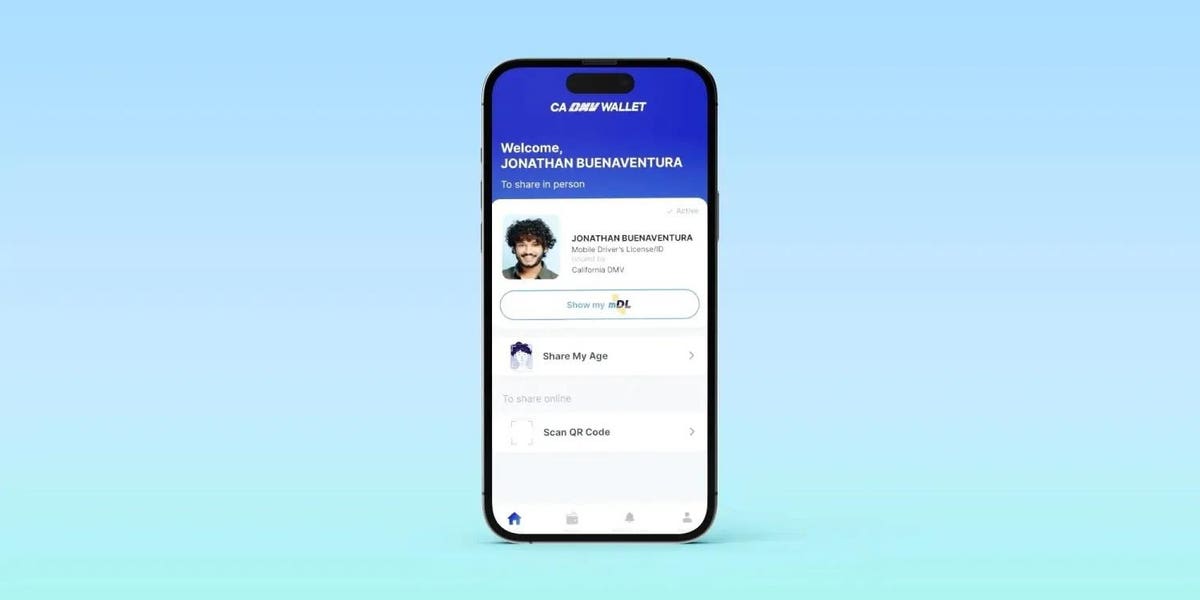Late last week, Chance Miller at 9to5 Mac posted a report about the state of California announcing support for digital identification cards. The app, available on iOS and Android, called mDL is billed by the Department of Motor Vehicles as helping people “offers a quick and secure identity-check at airports, without handing over your phone” at San Francisco (SFO) and Los Angeles International Airports (LAX).
The pilot program is limited to 1.5 million participants, per the DMV.
The agency posted a video about the new app to its YouTube channel.
Although a welcome development in general, the news of the state’s new app manages to conveniently ignore the California-based elephant in the room. At WWDC two years ago, Apple announced the Wallet app on iOS and watchOS would support virtual identification cards; Apple Pay vice president Jennifer Bailey noted in a press release the advent of virtual IDs “marked an important step in our vision of replacing the physical wallet with a secure and easy-to-use mobile wallet.” Nearly two years after making that proclamation, however, only four states—Arizona, Colorado, Georgia, and Maryland—support the ID feature in Apple Wallet. In 2021, Apple did note Connecticut, Iowa, Oklahoma, and Utah all pledged to support the functionality in their respective states.
As I alluded to in a story posted earlier today, the ever-burgeoning capabilities of digital wallets—and by extension, digital payments—are far more impactful than promising convenience, privacy, and security. To California’s point about using the mDL app to breeze through security at SFO and LAX, having one’s ID readily available on the iPhone via Apple Wallet would prove far more accessible (and expedient) than having to launch the bespoke mDL app—never mind the potential friction of digging through someone’s pocket or a purse for a physical wallet and a physical card. From a user experience standpoint, it’s much better to double-click the side button on your phone and find your ID because it can be done without unlocking the device. From an accessibility point of view, this consolidates what otherwise is a multi-step process into a single step. It’s the whole point of automation on the Mac and on iOS with tools like Automator and the Shortcuts app.
There are also valid questions to be answered about the mDL app’s accessibility, chiefly around its UI design and how well (if at all) it supports the system-level accessibility features like VoiceOver. (These concerns obviously are equally relevant to Android devices as well.)
An app is better than nothing, but California disappoints here.
An important detail worth mentioning is, despite the arrival of the app, California nonetheless advises people to still carry their physical ID cards with them for the time being because “law enforcement, state government agencies, and businesses aren’t yet accepting the mDL.”
Read the full article here





